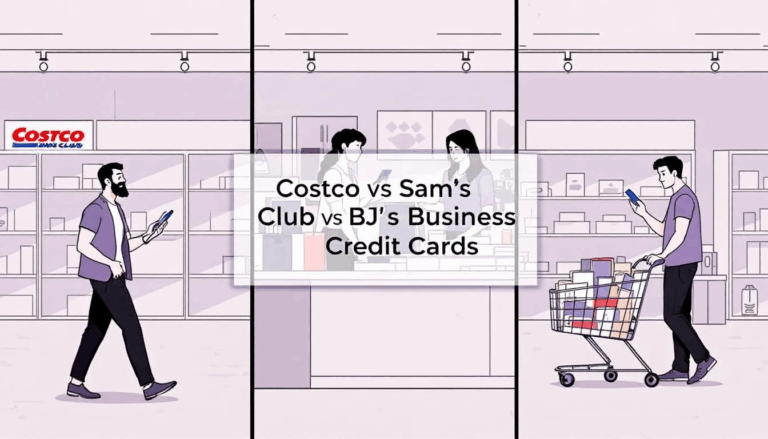How can my business get a $2 Million Business Loan?
Getting a $2 million business loan requires careful planning. Businesses often need this amount for significant expenses, such as expansion, debt refinancing, equipment purchases, or acquisitions. A clear plan shows lenders how the money will be used.
Specific requirements must be met for a large business loan. Most lenders look for high revenue and excellent personal credit scores. A solid financial history shows that you can repay the loan. Many lenders prefer businesses with consistent income and growth potential. Most $2 million business loans have repayment terms between 7 and 25 years.
Traditional Lenders
Traditional lenders include banks and credit unions, but not all can offer loans up to $2 million. For example, many credit unions and regional banks specialize in small business loans but can’t provide loans over $1 million. Banks and credit unions tend to offer the lowest rates on business loans.
Large commercial banks often can offer $2 million business loans. However, qualifying for these loans can be challenging. To qualify for a $2 million loan, you must have been in business for at least one year and generate $2 million in sales, give or take, on a monthly basis, unless you have collateral (Real Estate, Equipment, etc.). Most traditional lenders require that borrowers provide detailed financial documentation, including tax returns and profit and loss statements.
Additionally, commercial banks usually focus on enterprise-level corporations rather than small businesses. They require extensive documentation and may take longer to process applications. This process can be discouraging for many small business owners. Other financial institutions may provide more accessible options.
Alternative Lenders & Small Business Loan Marketplaces
Many online lenders do not offer loans of this size. However, some SBA-approved alternative lenders do provide loans of more significant amounts. These lenders often have more flexible requirements than traditional banks.
Alternative financing options include non-bank and private lenders. Non-bank lenders can move through the loan process in hours or days.
Small business loan marketplaces can also help owners find suitable options. They connect borrowers with various lenders in one place. This diversity increases the chances of finding a lender to provide a sizable loan.
Business loan marketplaces simplify the search process and save time for busy entrepreneurs. They allow small business owners to compare offers from multiple lenders easily.
What types of $2 Million Business Loans are Available?
Several types of small business loans can provide seven figures in funding, depending on the lender and your qualifications. Here are some small business loans available through our lender network that could provide up to $2 million in funding.
SBA Loan
- Loan Amounts: $50k – $10 million
- Interest rates: Starting at Prime + 2.75%
- Terms: 10 – 25 years
- Funding time: 4 – 12 weeks
SBA loans are one of the primary sources of million-dollar business loans. The US Small Business Administration (SBA) oversees the program to help promote lending practices that benefit the small business community. The loan amounts for SBA loans generally range between $50,000 and $5 million. However, some options can reach up to $10 million.
SBA loans typically have lower interest rates compared to conventional loans. The repayment terms for SBA loans can extend up to 25 years, depending on the loan purpose.
Instead of applying directly to the SBA, a small business owner must apply to an SBA-approved lender, which could be a bank, a credit union, or an alternative small business facilitator like UCS. Lenders must apply to the SBA and meet its requirements to offer SBA loans.
To qualify for an SBA loan, businesses must meet specific annual sales or employee size criteria, depending on the industry. SBA loans often require extensive documentation for the application process.
While the SBA doesn’t directly fund the loans, it partially guarantees up to 85%. SBA-guaranteed loans give lenders the security to offer loan amounts up to $5 million with low interest rates and extended repayment terms.
The SBA also helps decrease loan costs by limiting the interest rates and fees lenders can charge. Many consider SBA loans to be the gold standard of small business financing.
Business Term Loans
- Loan Amounts: $5k – $10 million
- Factor rates: Starting at 1-4% p/mo
- Terms: 3 months – 10 years
- Funding time: 1 – 3 business days
A business term loan is a conventional financing structure where you receive a large loan disbursement and repay it plus interest and fees in fixed payments. Business term loans of $2 million or more typically have lower interest rates, longer terms, and monthly payments.
However, since the principal is so high, you’ll still likely have a high monthly payment. Although the interest rate is likely lower, the total interest paid over the loan period will still be substantial.
Businesses can use the funds from term loans for most business purposes, including working capital, equipment purchases, refinancing debt, acquiring another company, expansion, and more. Most lenders will want a detailed plan of how you intend to use the funds. Specifically, they’ll examine how the investment will grow your revenue and the budget models to prove it.
Equipment Financing
- Loan Amounts: Up to $10 million per piece of equipment
- Interest rates: Starting at 6.5%
- Terms: 1 – 10 years
- Funding time: 1 – 2 business days
Business equipment loans allow you to purchase needed equipment when you don’t have the cash to pay for it outright. Most businesses across all industries need equipment, including commercial vehicles, computers and office furniture, point-of-sale systems, construction equipment, kitchen equipment, medical and dental equipment, and much more.
With an equipment loan, the asset you’re financing is the collateral. This is known as a self-collateralizing loan, similar to an auto loan or residential mortgage.
Once approved, the lender sends the funds to the equipment vendor, which then delivers and installs the equipment. You can use it immediately, and the lender maintains a lien on the title to the equipment. Once you pay the loan in full, the lender releases the lien, and you own it outright.
Merchant Cash Advance
- Loan Amounts: $5k – $5 million
- Interest rates: Starting at 1%-6% p/mo
- Terms: 3 – 24 months
- Funding time: 1 – 2 business days
Merchant cash advances (MCAs) are gaining popularity because they’re highly accessible and quick to fund. Most merchant cash advances are for lower amounts, but you could potentially get up to $1 million.
However, you’ll need annual sales numbers that measure in the millions. That’s because repayment for a merchant cash advance comes directly from your sales. Funders determine your advance amount based on previous sales history and projected future sales.
The MCA funder you work with purchases your future receivables at a discounted rate in exchange for the cash advance. Most MCA companies use a factor rate instead of an annual percentage rate (APR) to determine costs. Factor rates can range from 1.05 to 1.5. Multiply the advance amount by the factor rate to determine your costs.
Receivables Factoring
- Funding Amounts: $10k – $25 million
- Factor rates: Starting at 1% p/mo
- Terms: Up to 24 months
- Funding time: 1 – 2 weeks
Accounts receivable factoring lets you convert unpaid invoices into immediate working capital. The process involves working with a third-party funder called a factoring company.
Factoring is a business-to-business transaction in which the factoring company purchases or factors your invoices at a discount rate, sometimes called the factor rate. The factoring company issues a cash advance based on the invoice value, called an advance rate. Most advance rates are between 75% and 95%. Therefore, to qualify for invoice factoring of $2 million or more, you must have outstanding invoices exceeding this amount.
The factoring company owns the invoices and collects payments from your customers. Once your customers pay, the factoring company issues the remaining amount minus its fees. Invoice financing is a similar option, which uses unpaid invoices as collateral to secure business loans.
Revenue Based Financing
- Loan Amounts: $5k – $5 million
- Interest rates: Starting at 1%-6% p/mo
- Terms: 3 – 24 months
- Funding time: 1 – 2 business days
Revenue based financing is a unique form of business funding in which a company receives capital in exchange for a percentage of its future revenue. This type of financing is desirable for businesses with consistent revenue streams that may not have substantial business assets to secure traditional loans.
In revenue-based financing, the amount a business qualifies for is directly tied to its current and projected revenue. Companies must have substantial and predictable revenue to be eligible for more significant loan amounts. For example, a business seeking a revenue-based loan of $2 million would need to demonstrate a history of strong revenue and provide projections that show the ability to repay the loan based on future revenue streams.
This form of financing can be an attractive option for businesses looking to grow but may not want to take on traditional debt or give up equity in their company. By aligning repayment with revenue, businesses can manage cash flow more effectively and avoid the pressure of fixed monthly payments that may not align with their business cycles.
What are the qualifications for a 2 Million Dollar Business Loan?
Business owners must meet specific qualifications to secure a $2 million business loan. The exact qualifications depend on the lender and loan type. Generally, the application process and documentation are much more involved with seven-figure business loans.
Revenue & Cash Flow
When applying for a $2 million business loan, high revenue and consistent cash flow are crucial factors that lenders consider. Generally, businesses qualify for 1.5 times their monthly revenue. That means you’ll typically need at least $3 million in annual revenue to be eligible for a $2 million business loan.
A vital revenue stream indicates the business’s ability to generate income and repay the loan. At the same time, consistent cash flow demonstrates financial stability and the ability to meet repayment obligations on time. Lenders are more likely to approve a considerable loan amount when they see that the business has a history of profitability and financial health.
Credit Scores
Excellent personal credit is crucial when applying for a $2 million business loan, as it demonstrates to lenders your ability to manage finances responsibly. A strong credit score can increase your chances of approval and help you secure more favorable loan terms, such as lower interest rates.
Lenders often view a good credit history as a sign of reliability and trustworthiness, making it an essential factor in the loan approval process. Most lenders look for a personal credit score of 680 or higher for these types of loans.
Time in Business
Lenders look for an established business history when applying for a $2 million business loan. Some online lenders may be more willing to work with younger businesses for smaller loan amounts due to their potential for growth and success.
However, for more significant loan amounts like $2 million, lenders typically prefer to see at least two years of operation to demonstrate the business’s sustainability and ability to repay the loan. This longer track record helps reassure lenders that the business is established enough to handle the financial responsibility of a larger loan.
Collateral
Collateral is crucial in securing $2 million business loans as it provides lenders with security if the borrower defaults. While some lenders may offer unsecured loans of this amount, most require collateral to mitigate the risk of lending such a substantial sum. Collateral options can include equipment and fixed assets, commercial real estate, accounts receivable, inventory, cash and cash equivalents, securities, etc.
Collateral can be especially beneficial for businesses with lower revenue or credit scores, as it offers reassurance to lenders and increases the likelihood of loan approval. For example, secured financing options often offer better rates and higher amounts than an unsecured business line of credit.
The amount of collateral required may vary based on the size of the loan and the lender’s policies, but typically it should match the loan value. Alternative lenders, such as online lenders, often offer loans to small businesses without collateral.
Use of Funds & Business Plan
Lenders usually require proof of income and a clear understanding of how you plan to use the loan proceeds when applying for a loan. For large business loans, lenders may require a business plan detailing the purpose of the loan and its expected return on investment.
This is crucial as it helps the lender assess the feasibility of the business’s plans and ensures that the funds are being used effectively. Providing a detailed plan and budget demonstrates to the lender that the business has a clear strategy for growth and repayment, increasing the likelihood of loan approval.
Documentation
Preparing thorough documentation when applying for a $2 million business loan is crucial. This helps lenders assess the business’s financial health and viability. Lenders generally require financial statements, such as profit and loss statements and balance sheets, as part of the application. Providing comprehensive and organized documentation can increase the chances of approval for the loan.
Lenders may require documents such as:
- Financial Statements.
- Tax Returns.
- Business Plans.
- Cash Flow Projections.
- Personal and Business Credit Reports.
- Collateral Documents.
- Legal Documents like Business Licenses and Contracts.
Minimum Qualifications by Loan Type
Here are the minimum qualifications for the loans listed above. However, you may need higher qualifications when applying for $2 million or more.
SBA Loan:
- Minimum credit score: 650+
- Time in business: 2 years+
- Annual revenue: $3M+
Business Term Loans:
- Minimum credit score: 550+
- Time in business: 6 months+
- Annual revenue: $3M+
Invoice Factoring:
- Credit score: 500+
- Time in business: 1 year+
- Annual revenue: $3M+
Revenue-Based Financing:
- Minimum credit score: 500+
- Time in business: 4 months+
- Annual revenue: $120k+
What are the advantages of 2 Million Dollar Business Loans?
Larger loans offer many benefits for businesses. They provide a significant amount of capital to fund various projects. Many entrepreneurs use these funds for growth. This can include expanding operations or investing in new equipment. For example, purchasing new machinery can improve efficiency and productivity.
Access to a $2 million business loan increases opportunities. Businesses can take on larger contracts and projects, often leading to higher revenue and profitability. With more income, companies can reinvest in their business, which helps fuel further growth and success.
Flexible terms are another advantage of significant business loans. Lenders often offer varied repayment options, allowing businesses to choose what works best for them. Some may prefer longer repayment periods with lower monthly payments, while others might opt for shorter terms to pay off the loan quickly.
By acquiring the necessary resources, businesses can operate more effectively. Increased efficiency often translates into increased profits, and more money flowing in means better chances for growth.
Many entrepreneurs find that larger loans help them stand out in competitive markets. They can innovate and differentiate themselves from competitors with access to substantial funding. This can create unique products or services that attract customers.
What are the disadvantages of 2 Million Dollar Business Loans?
Large loans can be a double-edged sword for small business owners. While they provide the necessary capital, they also come with significant challenges. Borrowers might face high monthly payments. This can strain cash flow and affect daily operations. Not all businesses can handle such a financial burden.
Debt is another significant concern. Taking on a $2 million loan means committing to repay a large sum. If the business does not generate enough income, it can lead to financial distress. Many small business owners underestimate this risk. They may think the loan will solve their problems, but it can create new ones.
Interest is another concern. While larger loans may have competitive interest rates, even a low APR on a $2 million loan can result in significant interest accrual for the duration of the loan. This increased cost of debt can limit profit margins.
Another disadvantage is the potential for collateral requirements. Lenders may ask for business assets, such as property or equipment, as security for the loan. If the business fails to repay, the lender can seize those assets. This risk adds pressure on borrowers and affects decision-making.
The application process for a $2 million loan can be complex. It often requires extensive documentation and proof of income, as lenders want to ensure borrowers can manage such a large debt. This process can take weeks or even months, causing delays in funding.
$2 Million Business Loan Pros & Cons
Pros:
- Provides significant capital for business growth.
- Increases opportunities for larger contracts and projects.
- Offers flexible repayment options.
- Enhances business efficiency and profitability.
- Helps businesses stand out in competitive markets.
Cons:
- High monthly payments can strain cash flow.
- Debt commitment may lead to financial distress.
- Interest costs can limit profit margins.
- Collateral requirements add pressure on borrowers.
- Complex application process may cause funding delays.
How do you apply for a $2 Million Business Loan?
The application takes just a few minutes if you have the required information. Here’s how to get started:
Step 1: Consider Your Financing Needs
Before you begin the process, take some time to ensure this is the right financing option for your needs. Most lenders will want a detailed plan of how you intend to use the funds. This can also be an excellent exercise to determine how much funding you need and how those funds will help you boost your business.
Step 2: Gather Your Documents
The application requires the following documents and information:
- Driver’s license
- Voided business check
- Business bank statements from the past three months
- Business tax returns for the previous two years
- Personal tax returns for the last two years
- Financial documents
- A business plan
- A detailed plan of how you’ll use the funds
Step 3: Fill Out the Application
You can begin the process by calling us or filling out our one-page online form. Either way, you’ll be asked to enter the information from the previous section along with your desired funding amount.
Step 4: Speak to a Representative
Once you apply, a representative will contact you to explain the repayment structure and rates of your available options. This way, you won’t have to worry about surprises or hidden fees during repayment.
Step 5: Receive Approval
If and when you’re approved, funds should appear in your business bank account in 1-2 business days for some loans. SBA loans may take longer to close and fund.
Frequently Asked Questions
Here are the most common questions about $2 million business loans.
What’s the monthly payment on a $2 Million Business Loan?
Monthly payments on a $2 million business loan depend on several factors, including interest rates, loan terms, and repayment structure. A typical term loan may last from 5 to 20 years. Shorter terms usually mean higher monthly payments but lower total interest costs.
For example, let’s say you take out a $2 million loan with an interest rate of 6% for a term of 10 years. The monthly payment would be about $22,000. This amount can change if your interest rate fluctuates or you choose a different loan term.
Interest rates vary based on the lender and your business’s creditworthiness. A higher credit score often leads to lower interest rates. This can significantly reduce your monthly payments. For instance, if you secure a rate of 5%, the monthly payment drops to around $21,000.
Repayment also includes other costs. Loans often come with fees that add to the overall expense, such as origination fees or closing costs. It’s important to factor these into your financial projections when planning for repayments.
Expenses related to the loan need careful tracking. Monthly payments will include both principal and interest amounts. Understanding how much goes towards each helps in budgeting effectively.
Here are some key points to consider regarding monthly payments:
- Loan Amount: The larger the loan, the higher the payment.
- Interest Rate: Lower rates lead to smaller payments.
- Loan Term: Longer terms have lower monthly payments but increase overall costs.
- Fees: Additional charges can affect total payment amounts.
Calculating exact monthly payments is essential before committing to any loan agreement. Consider using an online business loan calculator that lets you input different interest rates and terms. This helps visualize how changes impact your budget.
Are there unsecured 2 Million Dollar Business Loans?
Unsecured business loans are available for various loan amounts. They do not require collateral, which means borrowers do not need to risk their assets. However, these loans often come with higher interest rates than secured loans, as lenders view them as riskier.
Many reliable business loan companies offer unsecured options. These lenders assess credit scores and business performance instead of collateral. A strong credit score can help secure better terms.
Secured business loans are another option for more significant amounts, like $2 million. These loans use collateral to back the loan, reducing lender risk. Typical forms of collateral include real estate or equipment. Borrowers may find lower interest rates with secured loans. However, if they fail to repay, lenders can seize the collateral.
Commercial bank loans often fall into the secured category. Banks typically require extensive documentation and a solid business plan. They evaluate cash flow and credit history before approving loans. The process can take time, but it may lead to favorable terms.
How long does it take to get approved for a $2 Million Business Loan?
Approval times for a $2 million business loan can differ depending on several important factors. Typically, you can expect to wait anywhere from a few days to several weeks before hearing back from the lender. This waiting period can feel long, especially when you need the money for your business.
A significant factor in the time it takes is the lender’s application processing time. Some lenders are quicker than others because they have more staff or better technology to handle loans.
Another critical factor that affects approval time is how complete and accurate your application is. Providing all the necessary documents and information promptly, such as your business plan, financial statements, and credit history, can expedite the process. However, if something is missing or unclear, the lender may need to ask you for more information, which can delay the process.
Can Startups get $2 Million Business Loans?
Securing a $2 million business loan as a startup is challenging, but not impossible. Traditional lenders often view startups as higher-risk borrowers because they lack established revenue history, consistent cash flow, and proven financial performance. Lenders typically assess the business’s financial records, including cash flow statements and revenue projections, during the qualification process. For many startups, these records are limited or nonexistent, which makes approval more difficult.
That said, you can secure large business loans with minimal or no initial capital through creative financing strategies. Some lenders are willing to take calculated risks if they believe in the potential of the business. Many entrepreneurs can qualify for large business loans without traditional financial prerequisites, using their business plan as leverage. Some lenders provide startup loans based on business plans and potential rather than current financial status.
Beyond traditional financing, startups often explore alternative funding methods. Many startups turn to crowdfunding platforms to raise funds for their ideas, which allows small contributions from many people. Crowdfunding platforms connect entrepreneurs with investors willing to invest in new businesses. Another approach is peer-to-peer lending, which will enable borrowers to pay interest rates similar to traditional loans without collateral requirements.
Here are some common funding options for startups seeking significant capital:
- Equity Financing – Sell ownership stakes in your company to investors in exchange for capital.
- Peer-to-Peer Lending – Access loans funded directly by individuals online, often with lower barriers to entry.
- Crowdfunding – Raise smaller amounts from many contributors, often through popular online platforms.
- Small Business Grants – Secure non-repayable funding from government or private organizations to support growth.
- Business Credit Cards – Business credit cards provide a more accessible line of credit for startups, but finding a credit card company that offers a $2 million credit limit can be challenging.
- Personal loan options – Some entrepreneurs use personal loans when they’re just starting. However, it’s generally recommended to avoid mixing personal and business finances.
Can I get a $2 Million Business Loan with bad credit?
Having poor credit can make it harder to get a loan. Lenders see a low credit score as a risk. They worry that you may not repay the loan. However, some lenders specialize in working with those who have bad credit. These lenders might offer loans with higher interest rates or stricter terms.
Bad credit business loans through our network have the following features:
- Loan Amounts: $1k – $5 million
- Interest rates: Starting at 1%-6% p/mo
- Terms: 3 months – 5 years
- Funding time: 1 – 3 business days
Business loans for bad credit typically involve quick and easy online applications, quick approvals, and fast funding. Many entrepreneurs seek loans specifically designed to support businesses with poor credit histories.
However, this process may be more involved when applying for a $2 million bad credit loan. You’ll typically need high revenue ($3 million+), strong cash flow, and collateral to overcome credit score challenges. Most lenders ask for financial documentation, including bank statements, profit and loss statements, and tax returns from the last few years, to assess your business’s financial health.
It’s crucial to note that these loans have higher interest rates and fees. Additionally, bad credit business loans often have shorter repayment terms. Short terms and high interest payments can make repayment challenging and pose the risk of trapping small business owners in a cycle of debt that’s difficult to escape.
One potential option is to secure a bad credit business loan for a smaller amount, serving as temporary bridge financing. As you repay the bad credit loan and build a positive credit history, you could potentially qualify for a more advantageous, long-term loan, such as an SBA loan.
Regardless, improving your credit profile before applying for a small business loan is always a good idea. Here are some potential strategies to help improve your chances:
- Build your business credit score: Establishing strong business credit can help offset poor personal credit. Some lenders might only consider business credit scores for more established companies.
- Show cash flow: Demonstrating consistent cash flow can reassure lenders about your ability to repay the loan.
- Offer collateral: Providing collateral can lower the lender’s risk and increase your chances of approval.
- Consider a co-signer: A co-signer with good credit may help you secure funding.
How to Get a $2 Million Business Loan – Final Thoughts
Getting a $2 million business loan can be a game-changer for your company. Knowing the types of loans, qualifications, and pros and cons is crucial.
Understanding the application process and monthly payments is essential in making informed decisions. Assess your needs and explore your options to find the best deal for your business.
Contact us if you have more questions about securing seven figures and applying for a small business loan. Our alternative financing experts can help you find the best business loan options to achieve your goals.













